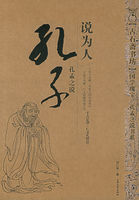For instance, the question, what was a sufficient assignment to give an assign the benefit of a covenant for quiet enjoyment, was argued and decided on the authority of the old cases of warranty.
The assign, as in warranty, came in under the old covenant with the first covenantee, not by any new right of his own.Thus, in an action by an assign on a covenant for further assurance, the defendant set up a release by the original covenantee after the commencement of the suit.The court held that the assignee should have the benefit of the covenant."They held, that although the breach was in the time of the assignee, yet if the release had been by the covenantee (who is a party to the deed, and from whom the plaintiff derives) before any breach, or before the suit commenced, it had been a good bar to the assignee from bringing this writ of covenant.But the breach of the covenant being in the time of the assignee,...and the action brought by him, and so attached in his person, the covenantee cannot release this action wherein the assignee is interested." The covenantee even after assignment remains the legal party to the contract.The assign comes in under him, and does not put an end to his control over it, until by breach and action a new right attaches in the assign's person, distinct from the rights derived from the persona of his grantor.Later, the assign got a more independent standing, as the original foundation of his rights sunk gradually out of sight, and a release after assignment became ineffectual, at least in the case of a covenant to pay rent. Only privies in estate with the original covenantee can have the benefit of covenants for title.It has been shown that a similar limitation of the benefits of the ancient warranty was required by its earlier history before the assign was allowed to sue, and that the fiction by which he got that right could not extend it beyond that limit.This analogy also was followed.For instance, a tenant in tail male made a lease for years with covenants of right to let and for quiet enjoyment, and then died without issue male.The lessee assigned the lease to the plaintiff.The latter was soon turned out, and thereupon brought an action upon the covenant against the executor of the lessor.
It was held that he could not recover, because he was not privy in estate with the original covenantee.For the lease, which was the original covenantee's estate, was ended by the death of the lessor and termination of the estate tail out of which the lease was granted, before the form of assignment to the plaintiff. The only point remaining to make the analogy between covenants for title and warranty complete was to require assigns to be mentioned in order to enable them to sue.In modern times, of course, such a requirement, if it should exist, would be purely formal, and would be of no importance except as an ear-mark by which to trace the history of a doctrine.It would aid our studies if we could say that wherever assigns are to get the benefit of a covenant as privies in estate with the covenantee, they must be mentioned in the covenant.Whether such a requirement does exist or not would be hard to tell from the decisions alone.It is commonly supposed not to.But the popular opinion on this trifling point springs from a failure to understand one of the great antinomies of the law, which must now be explained.
So far as we have gone, we have found that, wherever one party steps into the rights or obligations of another, without in turn filling the situation of fact of which those rights or obligations are the legal consequences, the substitution is explained by a fictitious identification of the two individuals, which is derived from the analogy of the inheritance.This identification has been seen as it has been consciously worked out in the creation of the executor, whose entire status is governed by it.It has been seen still consciously applied in the narrower sphere of the heir.It has been found hidden at the root of the relation between buyer and seller in two cases at least, prescription and warranty, when the history of that relation is opened to a sufficient depth.
But although it would be more symmetrical if this analysis exhausted the subject, there is another class of cases in which the transfer of rights takes place upon a wholly different plan.
In explaining the succession which is worked out between buyer and seller for the purpose of creating a prescriptive right, such as a right of way over neighboring land to the land bought and sold, it was shown that one who, instead of purchasing the land, had wrongfully possessed himself of it by force, would not be treated as a successor, and would get no benefit from the previous use of the way by his disseisee.But when the former possessor has already gained a right of way before he is turned out, a new principle comes into operation.If the owner of the land over which the way ran stopped it up, and was sued by the wrongful possessor, a defence on the ground that the disseisor had not succeeded to the former owner's rights would not prevail.
The disseisor would be protected in his possession of the land against all but the rightful owner, and he would equally be protected in his use of the way.This rule of law does not stand on a succession between the wrongful possessor and the owner, which is out of the question.Neither can it be defended on the same ground as the protection to the occupation of the land itself.That ground is that the law defends possession against everything except a better title.But, as has been said before, the common law does not recognize possession of a way.Aman who has used a way ten years without title cannot sue even a stranger for stopping it.He was a trespasser at the beginning, he is nothing but a trespasser still.There must exist a right against the servient owner before there is a right against anybody else.At the same time it is clear that a way is no more capable of possession because somebody else has a right to it, than if no one had.















